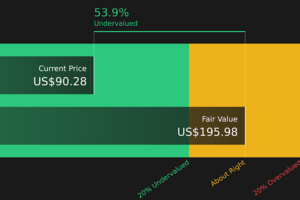
April is National Financial Literacy Month. To mark the occasion, MarketWatch will publish a series of “Financial Fitness” articles to help readers improve their fiscal health, and offer advice on how to save, invest and spend their money wisely. Read more here.
Dear Quentin,
My husband, 51, and I, 48, are wracked with guilt over our lack of saving for our children’s college educations. Our kids are aged 14 and 16. We have never been extravagant spenders, always spending frugally (used car, eating in, careful budgeting, delaying buying a house).
However, a combination of debilitating medical and student-loan debt, meager incomes, and a total lack of family support — our parents were all dead before we met — has meant we also have never been in a position to save for our kids, let alone for ourselves.
Add to this, we grew up poor and financially ignorant, and I’m ashamed to say that even thinking about finances stresses us out. I know we need to focus on the things we can change (our understanding of finances) and not the things we can’t.
“‘Our kids are smart, sweet, grounded kids who deserve better.’”
My husband recently took a much better paying job, which allowed us to finally pay off our own student loans and start saving for retirement. But while this should be a relief, it’s paradoxically adding to our stress levels because our kids probably no longer qualify for financial aid.
I don’t know where to begin. Our kids are smart, sweet, grounded kids who deserve better. How can we overcome our shame and fear about money to start saving for our kids’ futures? What can we realistically even do at such a late date? Is it still worth getting a 529 Plan?
Thank you for your help.
Late to the College Savings Game
Dear Late to the Game,
You’ve come such a long way. How can I read your letter and have such admiration for you while you feel guilty and ashamed over your journey? You have accomplished so much: You’ve raised two children, paid off your student loans, lived within your means, all the while remaining married, and managing your day-to-day family life while holding down jobs. If most people could do one of those things, they’d be happy. You’ve done all of them.
There should be no shame in your game. It won’t help you, and acting from a place of fear and guilt will only hold you back. And from what you say about your life so far, you have pushed forward, and improved your circumstances. You’re now in a position to put money into a 529 Plan, a tax-advantaged college savings account, to help your children pay for school, and whether they end up with $500 or $5,000 by the time they head to college, I recommend you do it. You are setting a collective life goal.
Saving money for college has effects that go beyond any monetary value, according to this study by the Center for Social Development at Washington University in St. Louis. “Designating small amounts of money for school,” can increase the odds that students of various income groups ever enroll in college, the researchers found. In other words, there are cumulative, perhaps incalculable psychological effects, of having a 529 account in the first place.
“Saving money for college has effects that go beyond monetary value.”
If you have an employer match on contributions to your retirement plans, maximize it, says Mark Kantrowitz, the author of “How to Appeal for More College Financial Aid” and “Who Graduates from College? Who Doesn’t?” A shorter time horizon will require a less risky mix of investments — more money in money-market accounts and CDs, and less in stocks, he adds. But he too agrees that you should open a 529 account: “It’s cheaper to save than to borrow,” he says.
“That’s free money, which is hard to beat,” he adds. You should also ensure that they have half a year’s salary saved in an emergency fund before saving for college. “If you start saving for college from birth, a third of the college savings goal will come from earnings,” he says. “If you start saving for college when the children enter high school, less than 10% will come from earnings, and you’ll have to save six times as much to reach the same college savings goal.”
Direct-sold 529 plans have lower fees, Kantrowitz adds. “Aim for a plan that charges less than 1% in fees. Some charge as little as 0.5% in fees. Two-thirds of the states offer a state income tax break on contributions to the state’s 529 plan. If their state offers a state income-tax break on contributions to the state’s 529 plan, they should choose their state’s plan. State income-tax credits, and deductions matter more than lower fees after the children enter high school.”
Low- and moderate-income children may be more likely to enroll in and graduate from college when they have a college-savings account. “An LMI child with school savings of $1 to $499 before college age is more than three times more likely to enroll in college than an LMI child with no savings account and more than four and half times more likely to graduate,” the study found. They’re more than five times as likely to graduate with $500 or more saved.
“A shorter time horizon will require a less risky mix of investments.”
There are other things you can do and things you should not do. You and your kids could consider having them start school at a community college. In 2021, annual tuition at community colleges cost an average of $3,800 versus $10,740 at four-year state universities. Your children may also qualify for a Pell Grant, the money the federal government provides to low-income students to attend college. Avoid for-profit colleges. President Biden’s sweeping student-loan proposals also include more generous income-driven repayment plans for when it comes time for your children to pay off any student debt.
There are millions of families out there who have not saved for their children’s college through a tax-advantaged college savings plan. Around one-third of parents used college savings plans to save for their children’s college education, but that does not account for the millions of families who have not got such a plan. In fact, there are only around 15.8 million 529 accounts currently in existence, and they have saved about $28,953 on average in those 529 accounts.
Money stresses us all out. (Tax Day is April 18, and you can bet your bottom dollar that there are many people out there reading this letter who are waiting until the last minute to file their taxes because of anxiety paralysis.) The best way to manage your finances is to take action. Budget. Automate your savings. Put money — whatever you can afford — towards a 529 Plan so your children know it’s your wish for them to pursue higher education.
The gift is in the action and the expectation, as much as it is in the value of the account.
You can email The Moneyist with any financial and ethical questions at [email protected], and follow Quentin Fottrell on Twitter.
Check out the Moneyist private Facebook group, where we look for answers to life’s thorniest money issues. Post your questions, tell me what you want to know more about, or weigh in on the latest Moneyist columns.
The Moneyist regrets he cannot reply to questions individually.
More from Quentin Fottrell:








